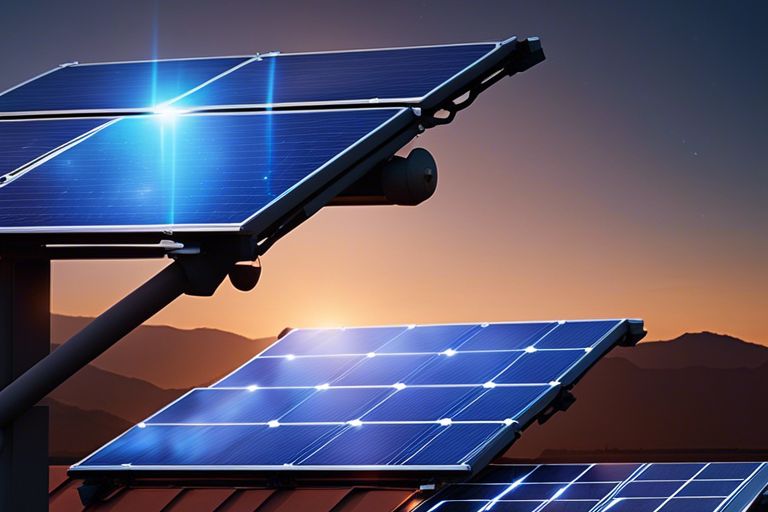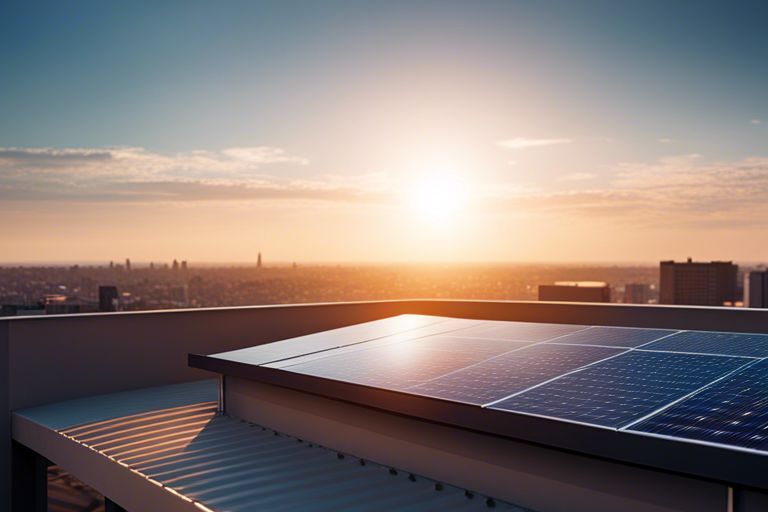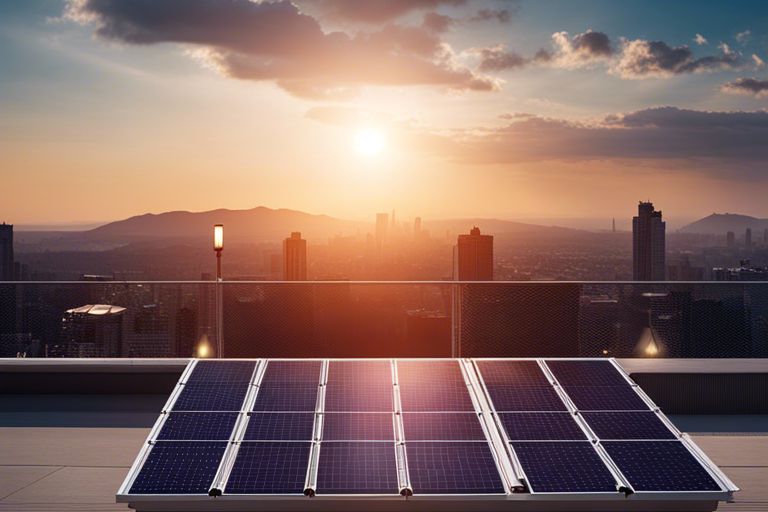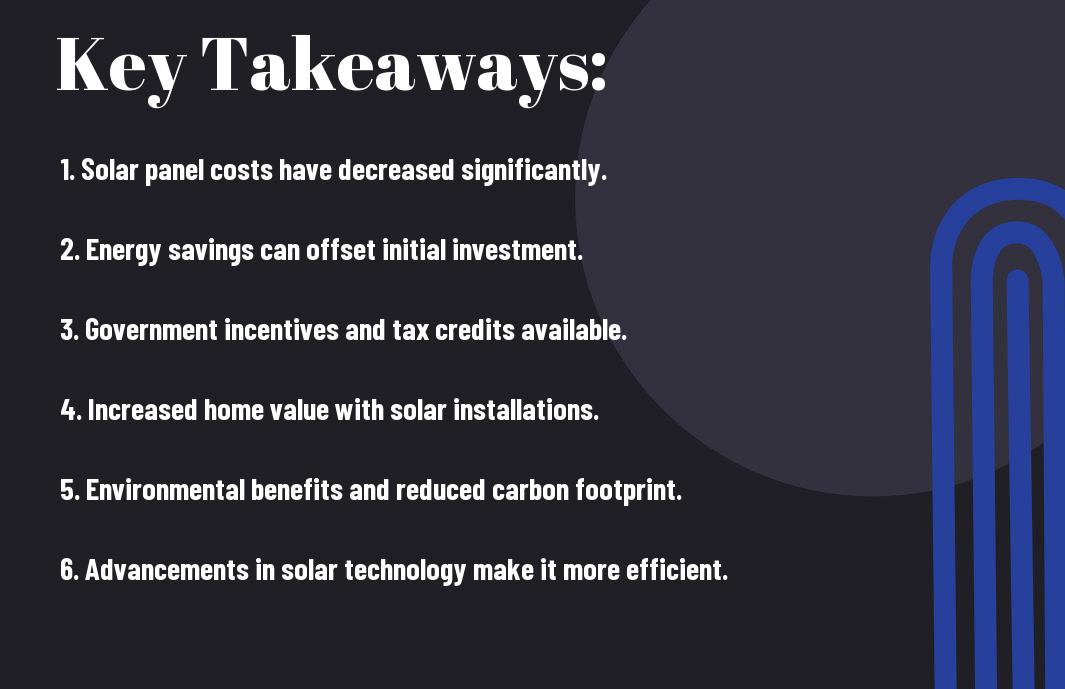It’s 2024, and you’re considering whether investing in solar power is a wise decision. With advancements in technology, changes in the energy market, and environmental concerns at the forefront, determining if solar is worth it this year requires a closer look. Let’s probe into the key factors that can help you make an informed decision about whether solar is a smart choice for you in 2024.
Key Takeaways:
- Decreasing Costs: Solar technology costs continue to decline, making it more affordable for homeowners and businesses to invest in solar energy systems.
- Environmental Benefits: Solar power helps reduce carbon emissions and reliance on fossil fuels, contributing to a more sustainable future for the planet.
- Financial Incentives: Various financial incentives, such as tax credits and rebates, are available for those who install solar panels, making it a potentially lucrative investment in the long run.
The Current State of Solar Energy
To find out if solar is worth it in 2024, you need to assess the current state of solar energy. If you’re considering investing in solar panels, you may wonder if they are a financially sound decision. An article on Are Solar Panels Worth It (2024 Guide)? can help you make an informed choice.
Advancements in Technology
State-of-the-art technology has significantly improved the efficiency and effectiveness of solar panels. Innovations such as higher efficiency solar cells, better energy storage solutions, and smart panel technology have made solar energy more accessible and reliable than ever before. These advancements not only increase the energy output of solar panels but also enhance their durability and longevity, making them a more attractive option for homeowners looking to reduce their carbon footprint and energy bills.
Decreasing Costs
Decreasing costs of solar panel systems have made solar energy a more affordable option for many homeowners. The price of solar panels has significantly dropped in recent years, thanks to advancements in manufacturing processes and economies of scale. Additionally, various incentives, such as tax credits and rebates, can further reduce the upfront costs of installing solar panels on your property. As a result, investing in solar energy has become a more feasible and cost-effective solution for generating clean electricity for your home.
The decreasing costs of solar panel systems, coupled with their long-term financial benefits, make them a worthwhile investment for homeowners looking to lower their energy bills and reduce their reliance on traditional grid electricity. By harnessing the power of the sun, you can not only save money in the long run but also contribute to a more sustainable future for the planet.
Environmental Benefits
Reducing Carbon Footprint
The adoption of solar energy plays a crucial role in reducing your carbon footprint. By harnessing energy from the sun, you are decreasing your reliance on fossil fuels, which are major contributors to greenhouse gas emissions. This shift to solar power helps combat climate change by lowering the amount of carbon dioxide released into the atmosphere.
Minimizing Air Pollution
To further enhance the environmental benefits of solar energy, you are also minimizing air pollution. Unlike traditional methods of electricity generation, such as coal or gas power plants, solar panels produce clean energy without emitting harmful pollutants like sulfur dioxide, nitrogen oxides, and particulate matter. By choosing solar, you are making a positive impact on air quality and public health.
It is important to note that air pollution from burning fossil fuels not only contributes to climate change but also leads to various respiratory and cardiovascular issues. By opting for solar energy, you are helping to create a cleaner and healthier environment for yourself and future generations.
Financial Incentives
Government Subsidies and Tax Credits
After making the decision to invest in solar panels for your home in 2024, you may be wondering about the financial incentives that can make this decision even more beneficial. Government subsidies and tax credits are two key ways you can save money when going solar. Many governments offer subsidies or rebates to help offset the initial cost of installing solar panels. Additionally, tax credits are often available for solar purchasers, allowing you to deduct a percentage of the installation cost from your taxes.
Increased Property Value
To further sweeten the deal of going solar in 2024, consider the potential increase in your property value. Homes equipped with solar panels typically sell at a premium compared to those without. This means that not only will you be saving money on your energy bills and benefiting from government incentives, but you may also see a return on your investment when it comes time to sell your home.
Credits: Installing solar panels on your property can also earn you credits in certain green building certification programs. These credits can enhance your property’s overall value and marketability, making it a more attractive option for environmentally conscious buyers.
Energy Independence
Breaking Free from Fossil Fuels
Fuels are a finite resource, and their prices can be unpredictable due to market fluctuations and geopolitical tensions. By investing in solar power, you are taking a step towards breaking free from the reliance on fossil fuels. With solar panels on your property, you can generate your electricity, reducing your dependence on traditional energy sources. This not only gives you more control over your energy consumption but also helps to lessen your carbon footprint, contributing to a greener planet.
Reliable Energy Source
Energy from the sun is a consistent and reliable source of power. Unlike fossil fuels that can be affected by supply chain disruptions or price hikes, solar energy is abundant and freely available. By harnessing this renewable resource, you can ensure a more stable energy supply for your household or business. Solar panels have a long lifespan and require minimal maintenance, making them a practical and reliable choice for meeting your energy needs.
Breaking free from fossil fuels and embracing solar power not only benefits you as an individual but also has broader implications for the environment and society as a whole. As more people transition to renewable energy sources like solar, we collectively move towards a more sustainable and energy-independent future.
Challenges and Limitations
Intermittent Energy Source
Challenges arise with solar energy due to its intermittent nature. Solar power generation is dependent on the availability of sunlight, which means that energy production may fluctuate throughout the day and is not available at night. This variability can pose challenges for grid stability and reliability, as energy demand does not always align with when solar panels are most productive.
All of this makes it crucial to have effective energy storage solutions in place to store excess energy generated during peak sunlight hours for use during periods of low sunlight or at night. While advancements in battery technology have been made to address this issue, the cost and efficiency of such storage solutions remain a challenge.
High Upfront Costs
For many individuals and businesses, one of the main challenges of adopting solar energy is the high upfront costs associated with purchasing and installing solar panels. While solar technology has become more affordable in recent years, the initial investment can still be significant. This cost can be a barrier for those looking to switch to solar power, despite the potential long-term savings on energy bills and environmental benefits.
This financial hurdle is important to consider when weighing the decision to invest in solar energy. In addition to the upfront costs, you should also evaluate the long-term savings and incentives available in your area to determine the overall financial impact of switching to solar power.
Real-World Applications
Residential Solar Installations
Not sure if investing in solar panels for your home is worth it in 2024? Residential solar installations continue to be a smart choice for homeowners looking to save on energy bills and reduce their carbon footprint. With advancements in technology, solar panels are more efficient and affordable than ever before. By harnessing the power of the sun, you can generate your own clean energy and potentially even earn money by selling excess power back to the grid.
Furthermore, many governments offer incentives such as tax credits and rebates for installing solar panels, making the initial investment even more attractive. When you consider the long-term savings on your electricity bills and the positive impact on the environment, residential solar installations prove to be a wise investment in 2024.
Commercial and Industrial Uses
RealWorld Commercial and industrial sectors are also reaping the benefits of solar energy in 2024. Large-scale solar installations on commercial buildings, factories, and warehouses not only provide a sustainable energy source but also help businesses save on operational costs. By reducing reliance on traditional power sources, companies can shield themselves from fluctuating energy prices and contribute to a greener future.
Businesses can even enhance their public image by demonstrating a commitment to environmental responsibility through solar installations. This can attract environmentally conscious customers and boost brand reputation, showcasing the multiple advantages of integrating solar power into commercial and industrial settings.
Final Words
The future of solar energy is bright, and investing in solar panels can be a beneficial choice for you in 2024. With the advancement of technology, decreasing costs, and environmental benefits, solar power is becoming increasingly attractive for homeowners and businesses alike. By harnessing the power of the sun, you not only reduce your carbon footprint but also save on energy costs in the long run. So, is solar worth it in 2024? The answer is a resounding yes.
FAQ
Q: Is solar worth it in 2024?
A: Yes, solar energy continues to be a worthwhile investment in 2024 due to decreasing costs of solar panels, available tax incentives, and potential long-term savings on electricity bills.
Q: What are the benefits of installing solar panels in 2024?
A: Some benefits of installing solar panels in 2024 include reducing your carbon footprint, increasing the value of your property, and potentially earning money through solar incentives and rebates.
Q: How can I determine if solar is worth it for my home in 2024?
A: To determine if solar is worth it for your home in 2024, consider factors such as your current electricity usage, available sunlight in your area, upfront costs versus long-term savings, and any available financial incentives or rebates. Consulting with a solar energy provider can also help you assess the feasibility and benefits of installing solar panels.



